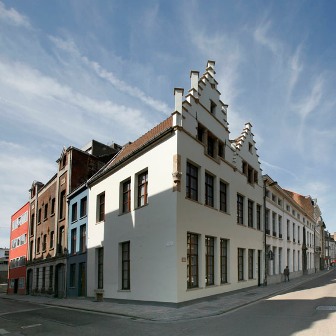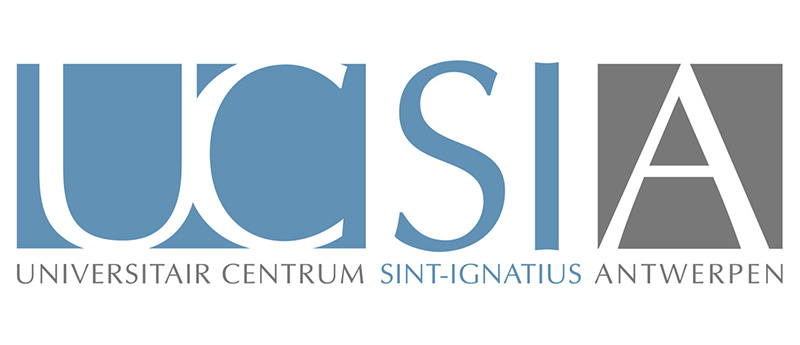
Islam and the State
Conference
The state remains contested in Muslim-majority countries and in Europe in relation to Muslim minorities. The two seminars and the public lecture that constitute this one-day study day, co-organised by UCSIA and NISIS, focus on the various tensions around the topic of ‘Islam and the state’, particularly in two countries in North Africa and the Middle East: Morocco and Lebanon, and two in Western Europe: Belgium and the Netherlands.
By looking at the country of origin of many migrants in both Morocco and Lebanon, a Middle Eastern country consisting entirely of minorities and comparing that to migrant communities in Belgium and the Netherlands, this study day focusses on the production, reception and application of ideas on Islam and the state in various settings, concentrating on both theory and practice.
Guest speakers include Nadia Fadil (KU Leuven), Martijn de Koning (Radboud University Nijmegen), Nina ter Laan (University of Cologne), Roschanack Shaery-Yazdi (University of Antwerp), Ward Vloeberghs (Erasmus University College Rotterdam) and Sami Zemni (Ghent University).
This study day is open to all. Doctoral students and Research Master students from the Netherlands and Flanders are especially encouraged to participate. Students affiliated with NISIS can gain 1 ECTS by actively participating in this study day.
Date & Time
12 May 2023
12.00 – 6.00 pm UTC+2
Location
University of Antwerp
Klooster van de Grauwzusters – Promotiezaal
Lange Sint-Annastraat 7, 2000 Antwerp
Registrations
Participation is free of charge.
Please register online before 28 April 2023.
Programme
12.00 p.m.
Workshop 1
Islam and the State in Lebanon
(in English)
While Morocco is a fairly homogeneous country, Lebanon is anything but that: it has dozens of religious, sectarian and ethnic minorities, ranging from Christians to Muslims, from Sunnis to Shiites and from Arabs to Armenians. While some of the political actors actively seek to accord a greater role for Islam on a state level (such as Hizbullah), others are staunchly against this or merely try to uphold the country’s fragile system of consociationalism. Is a tight relationship between Islam and the state even possible in such a divided country, with so many different religious minorities? If so, what Islam should that be? What fault lines can be discerned among the Lebanese on this question? To what extent are diasporic communities mobilised to support, cement or break down religious sectarianism in Lebanon? Is Islamic (or Islamist) opposition to the Lebanese state markedly different from that of other, more homogeneous countries in the region?
Keynote lecturers:
Roschanack Shaery-Yazdi (Associate Professor at the Department of History, University of Antwerp)
In this talk Roschanack Shaery-Yazdi will focus on the process of the politicization of the Shiite community in Lebanon since the late 1960s via the impact that various events such as the Lebanese civil war, the Iranian revolution, the Syrian military occupation in the postwar era, and finally the Syrian civil war has had on the empowerment of this once marginalized community. She zooms in particular on the changes in the image of Hizbullah since 1982 and the party’s increasing political power in the Lebanese arena. She will conclude by reflecting on how her own views on Hizbullah have shifted since the publication of her book Shiite Lebanon in 2008.
Ward Vloeberghs (Senior Lecturer in Political Science, Erasmus University College Rotterdam)
Ward Vloeberghs explores some dynamics within the contemporary Sunni political landscape over the past few decades. Without systematically reviewing all actors and (sub-)currents, he intends to use the concept of sectarian entrepreneurs and a concrete illustration of it to analyse in what ways Islam can be constructed as an identity for political purposes in post-war Lebanon. He will then build upon this notion to argue that statecraft in Lebanon needs to be understood as an ongoing, continuously relational process to better grasp the past and present positionings of Muslim politicians in a what is often mislabelled as a failed or failing state.
1.30 p.m.
Lunch break
2.30 p.m.
Workshop 2
Islam and the State in Morocco
(in English)
Unlike many of the republics in the Middle East and North Africa, Morocco has long been a kingdom. Like several other kingdoms in the region (notably Jordan and Saudi Arabia), the Moroccan regime claims to have a special relationship with Islam through the heritage of the king as the “commander of the faithful” (amir al-mu’minin) and the specifically “Moroccan Islam” presented and spread by the state. What does this state-sponsored Islam entail and how did it come into existence? How and why does the state spread this type of Islam to other parts of the world, including Western Europe? How is this Islam received by Moroccans themselves? Is opposition on Islamic (or Islamist) grounds still possible in a state that claims the mantle of Islam for itself?
Keynote lecturers:
Sami Zemni (Professor in Political and Social Sciences, Ghent University)
State and religion in Morocco: Moroccan Islam between Monarchy, Tradition, and Islamism
Even though Islam has played for centuries an important legitimizing role of the authority of the Moroccan monarchy and acted as an important rallying factor for nationalist sentiments under colonisation, it is only after independence that the Moroccan monarchy consciously set out to “étatise” Islam thus creating an ‘official Islam’. In this presentation Sami Zemni retraces how this regulatory process took shape and what role did (and does) Islam play in the nation-building process. Furthermore, he will shed light on how the Monarchy, strong of its religious credentials, created, promoted and controlled religious and political institutions in order to legitimize its rule and policy choices. The creation of a specific Moroccan ‘orthodoxy’ was from its inception developed with different goals in mind. Legitimation of the royal dynasty was directly linked to a security-agenda (internal oppositions, and ‘foreign’ or international ‘threats’) as well as a policy of authoritarian modernization. While overall successful, this “Moroccan Islam” has also been challenged over time. From Islamists accepting the political order over Islamists rejecting the royal institution to Salafi and Jihadi groups, the Monarchy has deployed new religious policies to answer these challenges. In presenting the nature of these questions in a broader analytical perspective Zemni will be able to unearth Islam’s functional role in Morocco’s state- and nation-building and developmental process.
Nina ter Laan (Postdoctoral researcher, University of Cologne)
Promoting a “Moroccan Islam” through Sufi aesthetics and Jewish heritage
Nina ter Laan will explore the country’s contemporary efforts to promote a ‘Moroccan Islam’ through aesthetic practices, both nationally and internationally. Rather than a conventional political science approach that focuses on policy instruments, she will examine how art forms and heritage are implicated in the production and contestation of a “Moroccan Islam”.
In particular, ter Laan will focus on the promotion of Sufism and the heritagization of Judaism, exploring how the recent promotion of these specific strands within Morocco’s religious landscape affects the country’s socio-political and religious dynamics and reshapes our understanding of Islam and the state in the Moroccan context.
She will also pay attention to the responses to these cultural and artistic initiatives from different sectors of society. The discussion aims to provide insights into Morocco’s approach to promoting a moderate and tolerant form of Islam and the implications of this strategy for the country’s political, religious, and cultural dynamics.
4.00 p.m.
Coffee break
4.30 p.m.
Public Lecture
Moroccan-Belgian and Moroccan-Dutch Minorities
(in Dutch)
Both Belgium and the Netherlands have had sizeable Moroccan communities for decades as a result of guestworker programmes, family reunification and migration. Although many of the initial Moroccan migrants to Belgium and the Netherlands were unskilled labourers, their descendants have found their way into the various layers and sectors of society. Given the fact that they are also divided between Arabic- and Berber-speaking sub-groups, this makes the Moroccan-Belgian and Moroccan-Dutch communities highly diverse ones. Yet one thing both communities have in common is that they are overwhelmingly Muslim and live in Muslim-minority countries. To what extent have these communities subconsciously inherited, implicitly incorporated or explicitly adopted ideas about Islam from Morocco? What does “Moroccan Islam” mean to Belgian and Dutch people of Moroccan descent? Have they been influenced by Islamic (or Islamist) opposition in Morocco itself? To what extent are they subjected to the Moroccan regime’s religious messaging? Does their position as minorities in Belgium and the Netherlands the way minorities in Lebanon cope with their positions?
Keynote lecturers:
Nadia Fadil (Associate Professor at the Department of Social and Cultural Anthropology, KU Leuven)
Martijn de Koning (Associate Professor Department of Islam, Politics and Society, Radboud University Nijmegen)
Read the abstracts of the lectures in Dutch here.
Moderator:
Leni Franken (Center Pieter Gillis, University of Antwerp)
6.00 p.m.
Keynotes
Nadia Fadil
Nadia Fadil works as an Associate Professor at the Department of Social and Cultural Anthropology at KU Leuven. She studied sociology and anthropology, and obtained a PhD in Social Sciences in 2008 at KU Leuven on a thesis entitled Submitting to God, Submitting to the Self. Secular and Religious trajectories of second-generation Belgian Maghrebi (supervisors: Rudi Laermans & Karel Dobbelaere). After her PhD, she was affiliated as a Postdoctoral Jean Monnet Research Fellow at the European University Institute (2008-2009) and an FWO Postdoctoral Researcher at KU Leuven (2009-2012). She has also been a Visiting Fellow at the University of California Berkeley (2011-2012) and a Fulbright Visiting Fellow at Columbia University (2018). She is currently the Program Director and Head of the Department of Social and Cultural Anthropology.
Martijn de Koning
Martijn de Koning conducts anthropological research with Muslims in Europe at the Radboud University in Nijmegen. He focuses on the racialisation of Muslims (Islamophobia) and activism among Muslims. He previously conducted research into Salafism in the Netherlands and into Dutch foreign fighters in Syria. He is engaged in research on activism among Muslims in Europe, Dutch Muslims in the UK, the racialisation of Muslims. He published about militant activism among Muslims, Dutch foreign fighters in Syria, the work of anti-Islamophobia initiatives, Moroccan-Dutch Muslim youth and their religious experiences and the rise and developments of ‘Salafism’ in the Netherlands. He is a member of the editorial team of the Journal of Muslims in Europe.
Roschanack Shaery-Yazdi
Roschanack Shaery-Yazdi taught at Washington University in St. Louis, conducted research at the University of Amsterdam on Syria, and held a four year postdoctoral fellowship at the Max Planck Institute for the Study of Religious and Ethnic Diversity in Göttingen/Germany, before joining the history department at the University of Antwerp. She is a social and political historian with a strong ethnographic approach and focus on transnationalism, Islamism (mainly Shiite movements), political violence and memory politics. Her research focus is the Arab East (Lebanon and Syria) and Iran.
Nina ter Laan
Nina ter Laan is a postdoctoral researcher at the Department of Social and Cultural Anthropology at the University of Cologne. She obtained her Ph.D. in Religious Studies (Islam Studies) at Radboud University in Nijmegen (The Netherlands) in 2016. She then worked as a postdoctoral researcher and lecturer in the Department of Religious Studies at Utrecht University until 2020. There, as a member of the research team Religious Matters in an Entangled World (led by Prof. Dr. Birgit Meyer), she studied homemaking practices and belonging among Dutch and Flemish converts who emigrated to Morocco. As of November 2020, she works as a postdoctoral fellow at the University of Cologne and the Collaborative Research Center Media of Cooperation (CRC, University of Siegen) on a collaborative and interdisciplinary project focusing on Digital Public Spheres and Social Transformation in Morocco.
Ward Vloeberghs
Ward Vloeberghs is affiliated with Erasmus University College Rotterdam (EUC) as a Senior Lecturer in political science. His expertise lies in the contemporary Middle East. His research focuses on the interaction between architecture, power and religion. At EUC, he developed a course in which students use buildings and architecture to teach each other about the political history of Islam. He also launched a course on comparative politics and co-created another one that revolves around maps to analyze Middle Eastern Politics, a first of its kind in Dutch liberal arts and science education. Currently, he is coordinating the Political Science and International Relations (POLIR).
Sami Zemni
Sami Zemni is Professor in Political and Social Sciences at the Center for Conflict and Development Studies, Ghent University, where he coordinates and leads the Middle East and North Africa Research Group (MENARG). His area of expertise is politics within the Middle East and North African region, with special reference to political Islam. He focuses mainly on developments in Morocco, Tunisia, Egypt, democratization in the Arab World as well as conflict in the Arab world. As a former director of the Center for Islam in Europe (CIE, 2002–2007), he has also written on issues of migration, integration, racism and Islamophobia.
Organizers
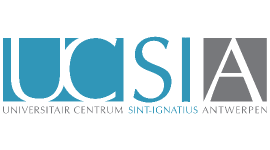
UCSIA
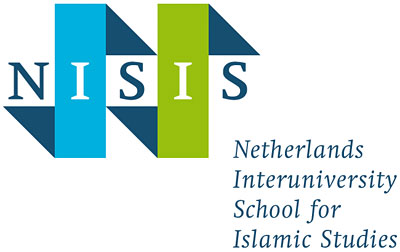
NISIS
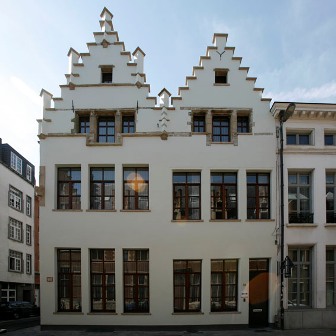
UCSIA
Koningstraat 2
B-2000 Antwerpen
info@ucsia.be
Tel. +32 (0)3 265 49 60
Voorlopige locatie tijdens de renovatiewerken:
Blindestraat 14, 2000 Antwerpen
